Note: This post may contain affiliate links which means if you click on a link and purchase an item, we will receive an affiliate commission at no extra cost to you.
This post is brought to you by some of Blake’s travel must-haves: a Kindle Paperwhite, a lined notebook, a sleep mask, and earplugs.
This is the latest interview in a series featuring digital nomads talking about their lives and lessons (click here if you want to be interviewed). The goal is to help demystify the process of making money online, wandering the world, and living an unconventional life!
Blake’s life as a nomad began before he finished college. He didn’t feel drawn to apply to med schools like he planned, so he went to South Korea to teach English. His inspiration and desire to live a location-independent life snowballed from there.
Thank you for hanging out with Freedom Is Everything, Blake!
Key takeaways from Blake’s interview:
“The reality is that it’s hard to connect with others living more traditional lifestyles. Some of your friendships might fade, it can be hard to meet people you click with when you travel, and even when you do, it’s usually only temporary. Everyone has their own plans and itineraries and usually end up going their separate ways. Those goodbyes are never fun. Plus, you can only have the same getting-to-know-you conversations so many times before they get old. All that to say that a nomadic lifestyle makes relationships a lot more complicated. But as I’ve learned, the best skill you can develop to make all of this less of an issue is networking. Get good at connecting with others and talking to strangers.”
“I live in Airbnbs year-round for the flexibility it provides. Even if I’m in a location for a while, the change of scenery helps keep things fresh. Plus, I like checking out the various neighborhoods in a city. I find this way of travel gives me the right balance: it leaves my life open for serendipity yet gives me just enough stability to make significant progress in my businesses.”
“Take pride in your work and see yourself as someone who always delivers quality. Make this part of your identity. Even if you’re working a job for someone else or doing client work, consider every piece of work you do to be a portfolio piece. Your work literally is your resume, and you can use it to snowball into working with bigger clients.”
“Over the course of a few years, I’ve shifted my mindset to the point where I welcome risks, adventure, and the unknown. I feel this has made me a much better entrepreneur as well, and the benefits have trickled down to all other parts of my life.”
Table of Contents
Introduce yourself! 🙂 Who are you? What do you do for work? And what is your nomadic story?
My journey started when I was in my senior year at the University of Ottawa.
As a health sciences major, I’d always planned on just applying to medical schools and continuing with my studies in some fashion or another — but when the time rolled around to start my applications, I was devoid of motivation to follow through with them.
After four years of intense studies, something just didn’t feel right. I felt a strong urge to make a change.
It was 2008. Instagram wasn’t a thing, and a nomadic lifestyle wasn’t even on my radar. I began searching for alternatives to what most university grads see as their two options: 1) enter the workforce, or 2) continue studying.
But I knew I wanted something completely different. I didn’t have money to travel, but I was searching for an idea that could somehow fund my lifestyle but allow me to relocate. Despite never having left the country, I felt the urge to explore.
I spent my final few months as a student researching all of my options and soon had my mind made up that I was going to teach English in a foreign country.
Quickly I was able to narrow down the options to either China, Japan, or South Korea.
I had never met anyone who had done this, and the job postings were all on outdated forums.
I found a blogger who wrote about his time teaching in Seoul, South Korea, and reached out to him to ask him some questions. Chatting with him helped ease my worries, and my mind was made up: I was heading to South Korea.
My parents weren’t convinced this was a great idea, but I was already committed. I took the leap and was transported one short month later to a completely new world.
The culture shock was real, but at the same time, was reinvigorating.
I used the money I made from teaching English there for a year to fund a month-long trip throughout Southeast Asia.
My eyes were opened, and my mind had transformed. This was the beginning of a new lifestyle for me.
I spent the next few years studying everything under the sun about marketing, online business creation, and sales.
After a few failed attempts, I finally had inklings of my first success with a language learning site I started.
Fast forward a few years, and that site had grown enough to fund my travels. Now it’s been eight years since I started that site, and I never looked back.
I’ve traveled to more than four countries in six continents and called South Korea, Thailand, Hong Kong, and Colombia home for more than one year each.
I’ve now been based in Medellin, Colombia, for at least part of the year since 2018 and am writing this from my quarantine in cottage country near Toronto, Canada.
What inspired you to start nomading? And how has nomading changed your perspective on life?
When I first moved to South Korea, my whole world was turned upside down.
Up until that point in my life, I had stuck to the system. I was a straight-A student who had always wanted to become a doctor, and I had made that part of my identity.
The change of environment was a massive catalyst that allowed me to make so many changes in the way I lived and thought about life.
As a result, my goals completely changed.
Here are a few ways my perspective changed quickly when I relocated:
- A new set of influences. I started meeting locals and became obsessed with learning from different cultures. I took up an interest in language learning and actively studied Korean to the point where I can now write, read and speak it at a conversational level. I’ve met a number of friends from other cultures who have undoubtedly changed my perspective on life, making me a much more open, curious, and culturally-aware person.
- Added accountability. Inevitably when you travel, you get exposed to different mindsets. I was lucky enough to come across a great group of expat friends in South Korea that were into self-improvement and business. We started a mastermind group where we discussed goals and books. I hadn’t thought of starting my own business until that point in my life, but this set me on a new trajectory.
- More focus on reading. I had a lot more time for reading when I relocated since my teaching hours were 1-9 pm. I read The 4 Hour Workweek after it was recommended by a new friend, and from there, I quickly fell down a rabbit hole of business and marketing. Tim Ferriss’ book outlined a brand new way of living that I had never known possible, and it soon became my mission to create that for myself.
Traveling the world has led to a complete shift in the way I think about my goals, life, and society. I’m a completely different person than I was when I first departed on that plane.
Please tell us the detailed story of how you started your business.
After coming up with an idea for a fun way to learn Korean for myself using visual associations, I put up a landing page. I spent an entire long weekend creating a free 45-page downloadable PDF and creating graphics and a mini sales video that would explain what visitors would get when they signed up.
The idea was triggered after reading a book on language learning, and I implemented steps I learned through studying marketing courses.
I used OptimizePress, a landing page builder, to build the page and created an autoresponder using a free Mailchimp account.
The goal was to get people to sign up to my email list and then just take things from there!
I worked really hard to create the best version of the download that I could and gave it a name that implied a benefit.
Then I thought of any way I could to spread the word. I didn’t have money for ads, so they needed to be free. I literally went through Craigslist posting it in various cities in the “Free” section, and dropped the link in Facebook groups.
I did this daily for about a month until I had about a hundred people on my email list.
This was a nice round number, so I decided it was time to launch a course and got to work creating it. It wasn’t even done when I advertised it to my list.
I created a sales page using the same landing page builder by modeling other successful sites.
Out of those hundred people on my email list, one ended up signing up. It wasn’t much, but it was motivation for me to keep going.
After two months, I had seven members, and after a year, closer to a hundred. During this first year, I took on a business partner, teaming up with a good friend of mine to grow the business.
We went to work on an SEO strategy and started hiring. We both were working full-time jobs, and we funded it with the little bit of extra cash we had and spent all our free time on it.
The course evolved into a year-long recurring subscription, and after a few years of hard work, we grew it to have nearly a thousand members.
After about two years of hustle, I decided to go full-time remote.
A year after that, my business partner and I realized we had different philosophies in terms of lifestyle, and I decided to sell my half of the business to him.
My content creation business, Content Daydream, was born in the aftermath of this exit.
I now manage a portfolio of content websites on various topics and help software companies grow through SEO and other marketing strategies.
What advice would you give to someone who’s thinking about nomading?
Here are a few pieces of advice I’d give to anyone thinking about living a location independent lifestyle:
1. Learn How to Network Like a Boss
When you finally achieve location independence and start off on your first adventures, you quickly realize that travel can actually be quite a lonely hobby, especially if you’re an extrovert. It’s not like your best friends also have the freedom to just jump on a plane and join you (though if they do, you have nothing to worry about here!)
The reality is that it’s hard to connect with others living more traditional lifestyles. Some of your friendships might fade, it can be hard to meet people you click with when you travel, and even when you do, it’s usually only temporary. Everyone has their own plans and itineraries and usually end up going their separate ways. Those goodbyes are never fun.
Plus, you can only have the same getting-to-know-you conversations so many times before they get old.
All that to say that a nomadic lifestyle makes relationships a lot more complicated.
But as I’ve learned, the best skill you can develop to make all of this less of an issue is networking. Get good at connecting with others and talking to strangers.
Some of my best relationships and friendships have come from striking up a conversation with someone who looks interesting.
Getting good at this means you’ll be able to make friends with others who live similar lifestyles and plan your travels accordingly. The lifestyle becomes a lot more exciting when you can do that (though, as an introvert, I still love my own solo trips from time to time).
2. Do the Things You’re Afraid of
Before I started traveling, I had never left my home country. I had doubts and fears around the “what-ifs” of student debt, resume gaps, and unknowns. Getting on a plane alone and relocating across the world was a scary step for me. The thought of getting up in front of a class to teach made me super nervous. I had anxiety around the idea of relocating again to a new country after learning the local language.
But each of these reference experiences made me more confident and able to tackle what came at me. Over the course of a few years, I’ve shifted my mindset to the point where I welcome risks, adventure, and the unknown. I feel this has made me a much better entrepreneur as well, and the benefits have trickled down to all other parts of my life.
Develop a mindset where you welcome risk and confront your fears head-on.
3. Ensure the Work Comes First
It’s all too easy to read a book like The 4-Hour Workweek and come away with the idea that it’s easy to start and maintain a business. But the reality is that it takes a ton of work, and in the first two years of your business, you will need to be glued to your laptop.
When you’re on the road, it can be too easy to be distracted by the sights and lose focus on your work.
Remember, it’s the work that funds that lifestyle, and the goal is to free up more of your time through automating your business. Work hard and ensure the sightseeing takes a back seat. Always set aside time for exploration (I find it helps you do better work anyway) and take time off, but don’t get caught up in the fun and lose your edge.
4. Research the Common Scams in Each Location Before Traveling
Do a Google search and read about the common scams before you go to a new location to make sure you’re not a victim. Coordinated schemes involve duping unsuspecting foreigners into overpaying, buying fake goods, robbing you of your money or possessions, or even something more nefarious. Examples include the art and tea scams in Beijing, the “temples are closed” and tuk tuk scams in Thailand, and the fake taxi scams in South America. Do your research and educate yourself.
5. Select Digital-Nomad-Friendly Locations
Especially when you’re starting out, it can be good to choose locations with an established community of digital nomads. These can help you meet friends quickly, network with like-minded people, and even open up some new opportunities.
Depending on budget, here are some locations I recommend checking out for this reason:
Chiang Mai, Thailand. Recommended Budget: At least $1000/month
Bali, Indonesia. Recommended Budget: At least $1100 USD/month
Ho Chi Minh City, Vietnam. Recommended Budget: At least $1000 USD/month
Medellin, Colombia. Recommended Budget: At least $1200 USD/month
Budapest, Hungary. Recommended Budget: At least $1500 USD /month
Taipei, Taiwan. Recommended Budget: At least $1800 USD/month
Barcelona, Spain. Recommended Budget: At least $3000 USD/month
What is unique about the way you travel, and what advice do you have for someone that wants to travel with a similar style?
I generally travel without a set itinerary and end up basing myself in particular locations for a while once I settle in one I like. I’ll usually then spend part of the year in that location and travel in between as needed for various projects or for exploration.
I live in Airbnbs year-round for the flexibility it provides. Even if I’m in a location for a while, the change of scenery helps keep things fresh. Plus, I like checking out the various neighborhoods in a city.
I find this way of travel gives me the right balance: it leaves my life open for serendipity yet gives me just enough stability to make significant progress in my businesses.
What are the 2-3 favorite places where you’ve lived/traveled to and why?
My top three favorite places I’ve traveled to are:
- Iceland. I ventured all across Iceland back in 2016, and it’s by far my favorite place I’ve traveled to. I can only describe it as a magical, otherworldly place. Think: sheep, horses, mountains, caves, waterfalls, streams, glaciers, volcanoes, and rainbows. Lush green mountains next to Mars-like terrain. Ice worlds. Ever since I watched the Sigur Rós DVD Heima as a university student, I became obsessed with the idea of going to Iceland. Finally getting to explore the country and learn more about the culture was a dream come true for me.
- Thailand. I’ve taken multiple trips to Thailand and traveled all over the country, but I always tend to wind up in the same spot. My favorite place to set up shop is on the beaches of Kho Phangan. I love the laid-back island atmosphere, the jungle hikes, the white sand beaches, and the social life when you crave it. One of my favorite coworking spots is Beachub, right on the waterfront with a view!
- South Africa. I was lucky enough to spend time in Capetown and do road trips to nearby cities along the Garden Route. Here, I was able to check off a number of bucket-list items, including cage diving with great white sharks, whale watching, bungee jumping, and going on a horseback safari. It was an adventure I’ll never forget!
Honorable mentions include Cappadocia, Turkey, Medellin, Colombia (now home for part of the year), Iquitos and Machu Picchu, Peru (each adventures in their own right), and the historical sites of Israel and Palestine.
For someone interested in becoming an entrepreneur in your field, what’s the best advice you would give? And what books, podcasts, thought leaders, or other learning resources do you recommend?
Whether you’re looking to become a digital entrepreneur or freelancer with an abundance of high-quality clients, here’s what I would say.
Take pride in your work and see yourself as someone who always delivers quality. Make this part of your identity. Even if you’re working a job for someone else or doing client work, consider every piece of work you do to be a portfolio piece. Your work literally is your resume, and you can use it to snowball into working with bigger clients.
Another thing is not to focus on courses. A lot of what you see advertised in the entrepreneurship and internet marketing space is just fluff and marketing. Courses can be super helpful when it’s around a targeted topic, but you only need one or two to get started. Implement as you watch it instead of consuming it all. It’s too easy to trick yourself into needing to educate yourself before ever having started.
Watch what the course sellers are doing in their own businesses and learn from that. That will often teach you more than enough. Model what’s already working, and learn to become good at melding two or three ideas from unrelated industries to create something that’s truly your own.
Here are a few thought leaders that I learned from when I was first studying:
- Eben Pagan
- Seth Godin
- Tim Ferriss
- Russell Brunson
- Jon Morrow
- Matthew Woodward
- Pat Flynn
- Ryan Stewart
These books gave me insights or taught me things that changed the course of my career:
- Show Your Work by Austin Kleon
- The 4-Hour Workweek by Tim Ferriss
- Linchpin by Seth Godin
- Unscripted by MJ DeMarco
These two podcasts have been the most helpful to me over the years:
- Authority Hacker
- Tropical MBA
Since launching, what has been most effective to acquire/retain customers and scale your business?
The customers for my language learning business were found through a mix of channels, but the majority (65-75%) came from organic search traffic. After a few years, we ranked #1 in Google for a lot of the most competitive terms in our niche and were bringing in nearly 300k organic monthly visitors.
We also built up an affiliate program, though only about 30% of the affiliates ever amounted to anything, and the top 15% of affiliates brought in 90% of the sales.
We scaled by hiring and outsourcing, and that was the hardest part for me as a perfectionist who wanted to do everything myself. We constantly were handing off our lowest level tasks to virtual assistants when possible and eventually trained a full-time manager to take care of a lot of the repeatable processes in the business. We began focusing more on the overall strategy and implementation.
For my content creation business, the best way to find clients has been through networking with successful entrepreneurs and through referrals.
What digital tools do you use for your work/business?
Here’s a list of every tool I use to run my businesses:
- Asana. Asana helps my team stay organized and productive. We use it to prioritize and assign tasks and projects.
- Slack. It’s the best communication tool for remote teams, and I use it every day.
- Zoom. For all my remote meetings and coaching, I use Zoom to video chat with teammates and clients around the world.
- Loom. I use Loom to record SOP videos to hand off to VAs or explain tasks to website developers.
- Workpuls. My virtual assistants use Workpuls to clock in and clock out for the day, and it comes with an awesome set of analytics.
- Elementor. I use this page builder to create a lot of my content websites because it’s drag-and-drop and easy to use.
- ActiveCampaign. After trying various email platforms, I now use ActiveCampaign because it comes with a wide range of features, and it’s priced right!
- Surfer. This is a valuable SEO tool that shows me clusters of keywords to create content around and helps me audit my content to improve its visibility in Google.
- Ahrefs. I use Ahrefs for keyword research and tracking my keyword position in Google.
- Tailwind. This tool helps me schedule Pinterest pins months into the future and automates the whole process.
- SmarterQueue. This social media scheduling tool for Twitter, Facebook, Linkedin, and Instagram helps you tee up content in advance and recycle it if you want.
- Dialpad. I use Dialpad to make and receive calls all around the world and keep a US number.
What scale is your business at today, and what are your future goals?
When I left my language-learning business, it was at 300k monthly unique visitors and 20k a month in recurring revenue.
Now in my content creation business, I generally work with high-income business owners or fast-growing businesses. One company I’m working with is generating $1 million in monthly revenue, and the founder of a startup I’m working with recently sold his portion of his software company for nearly $30 million!
My goal for my content websites is to grow them all to the size of my language learning business in terms of monthly traffic.
What is your philosophy on being happy and/or finding meaning/purpose in life? And any recommended resources for people navigating this journey?
As part of my Master’s thesis at the City University of Hong Kong, I studied intrinsic and extrinsic goals and how they relate to happiness. This research colors a lot of my philosophies on happiness and meaning in life.
Chasing intrinsic goals such as self-development and authenticity makes you a lot happier than chasing extrinsic goals such as fame and wealth.
In one study, for example, researchers studied adults that had achieved financial freedom and found that among them, the ones with the highest materialistic values were objectively the least happy. I think this tells us something important.
For my life philosophy, I take inspiration from the flâneur, a literary figure and a way of thinking.
A flâneur is someone who wanders without a set goal. For me, this represents the perfect freedom — to be able to spend the entirety of your focus and energy on whatever is called to you in the moment.
Below are a few of the reasons I think like the “flâneur” philosophy. The whole way of thinking is about:
- Finding meaning. The lifestyle is not about a hedonistic search for the next hit of pleasure but rather a search for what resonates deeply with the soul.
- A search for freedom. In order to completely remove ourselves from such strict schedules, it’s necessary to create some level of financial freedom. But ultimately, the freedom flâneurs possess is a state of mind. It’s about slowing down and soaking up more of life.
- A quest for continuous learning and documentation. Though flâneurs explore for the sake of their own personal enjoyment, they may document any knowledge or ideas they’ve extracted from their journeys in the hope that they may be of use for others.
- Experimentation. Flâneurs learn through trial and error and taking calculated risks. This is a great way to ensure that you’re always improving and setting yourself up for big potential upside while limiting downside risk.
- Streaming life. Flâneurs make real-time decisions as they come across new information. They live their lives in pursuit of open, flexible plans as opposed to living according to a strict, orderly itinerary. This represents the way I love to travel.
- Connection and synergy. Flâneurs are global citizens and aren’t attached to one place as part of their identity. Their notion of home remains fluid and adaptable, and this makes it easy to connect with others from different cultures.
If you only had a few minutes to live, what are the most important life lessons you would share with the world?
I’m not sure I have a great answer to this question, to be honest, but I hope that as I continue to gain experience, I will feel qualified to share this type of advice. The one thing that I can say with certainty is that you have to live the life you want to live, not that one that others pressure you into living (or the one you put pressure onto yourself to live). If it doesn’t feel right to you, it probably isn’t, and it’s ok to evolve in terms of your self-identity. Work really hard to create the lifestyle you truly want, and in the process, get good at delayed gratification.
I’m working on a list of advice to my younger self that I’ll keep updated over time, so I will keep adding new learnings there!
What do you travel with that you couldn’t imagine traveling without?
These are the things I absolutely can’t live without on the road:
- MacBook Pro
- Kindle Paperwhite
- A regular, lined notebook
- Sleep mask and earplugs
- Poly Voyager 8200 UC headphones
- Nano Ledger cryptocurrency wallet
- High-quality carry-on luggage (this one from Thule is a good choice).
What small change has made a big difference in your life?
Journaling has made a big impact on my productivity, organization, and overall mindset. I started keeping a journal as a university student, writing down insights or things that came to mind and documenting my changes in thinking over time.
I started out using Word documents, then switched to Evernote and, more recently to Bear.
But for a number of years, I’ve also been handwriting out my daily goals in a notebook. I’m probably on my thirtieth one now (and I still have them all). Writing things out by hand made a major difference for me in terms of accomplishing what I set out to do. There’s a big difference from a physical journal for me and notes on a screen. It’s something more tangible, and I find the act of physically writing things out helps solidify them in your mind.
What’s your favorite book and why?
This is a very tough call, but if forced, I think I’d have to say Walden by Henry David Thoreau. It can be a tough read, but there are so many insights and fantastic quotes in that book that were an influence to so many of today’s writers, and for that reason, I think I’d choose it.
Here’s a list of some of my other favorites.
How can people learn more about you and your work?
I’m not as active online these days, but you can connect with me on social media through my Instagram accounts @blakegoesplaces or @theflaneurlife. The best way to reach me is through my blog, Flaneur Life.


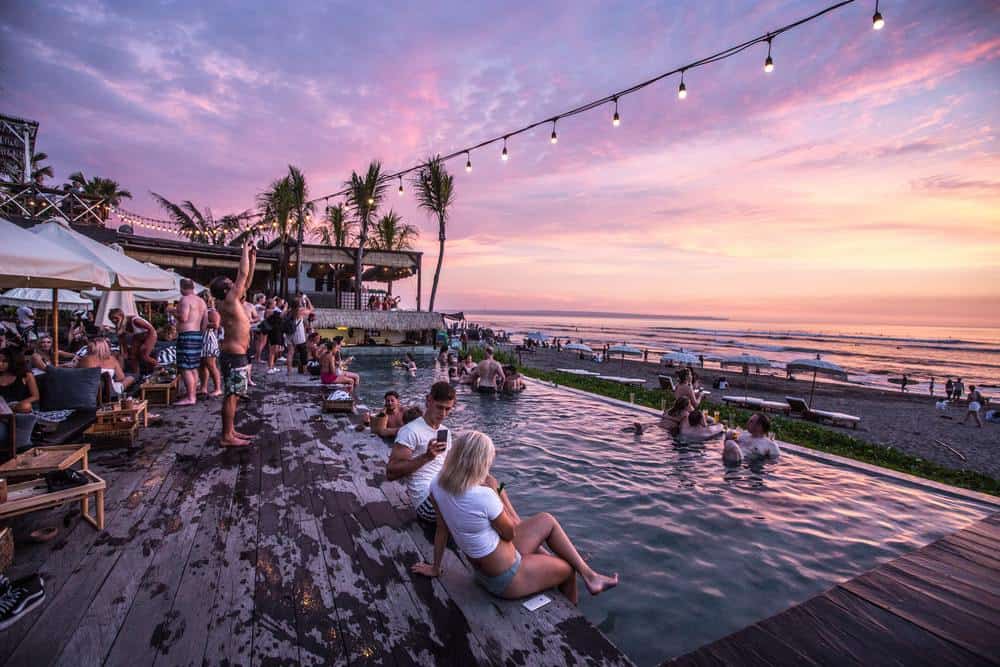
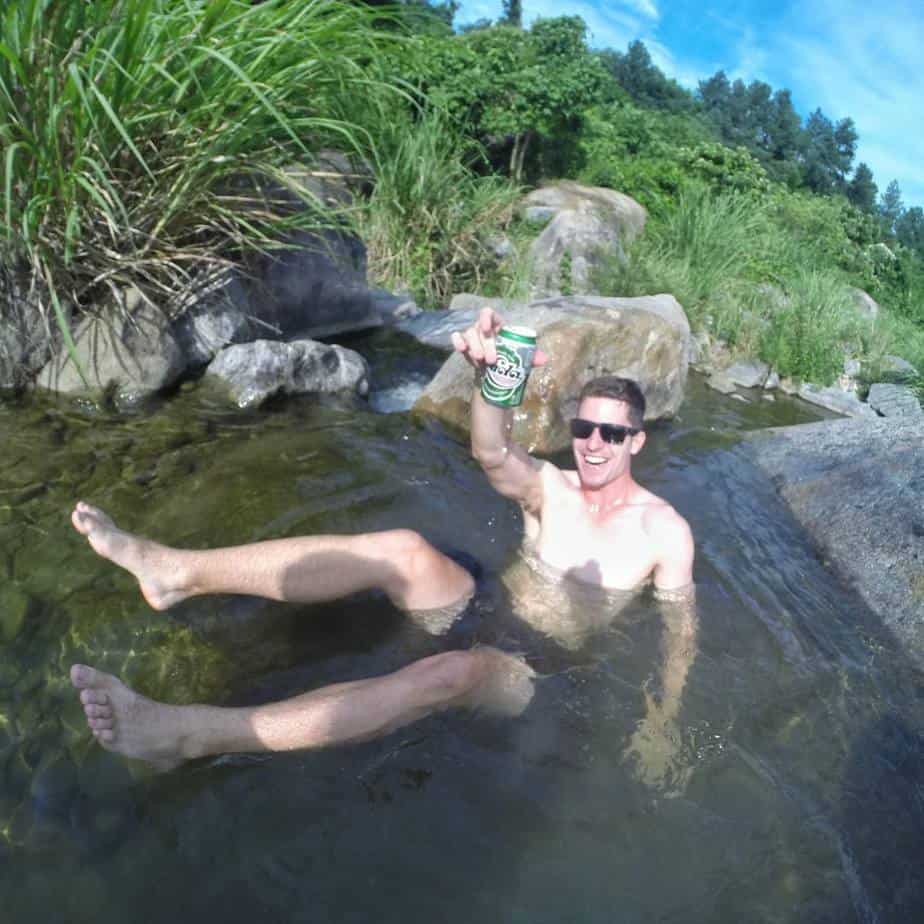
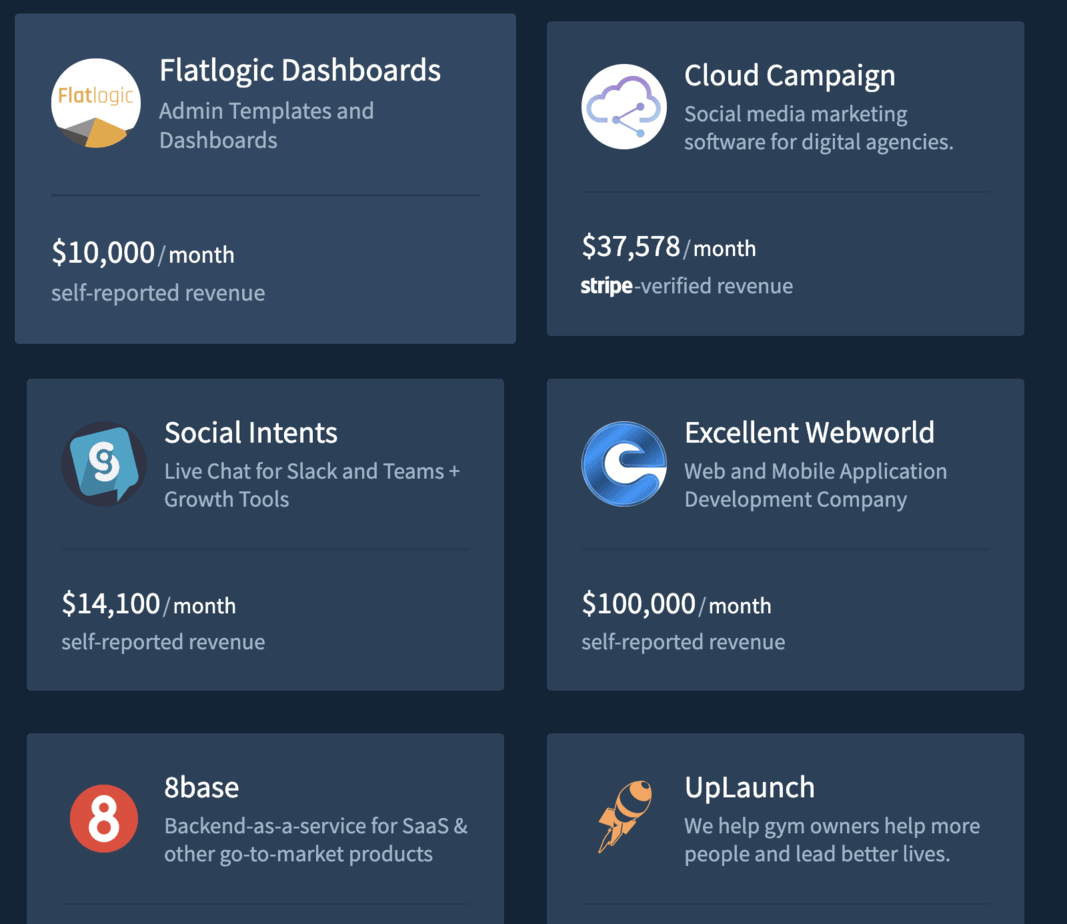
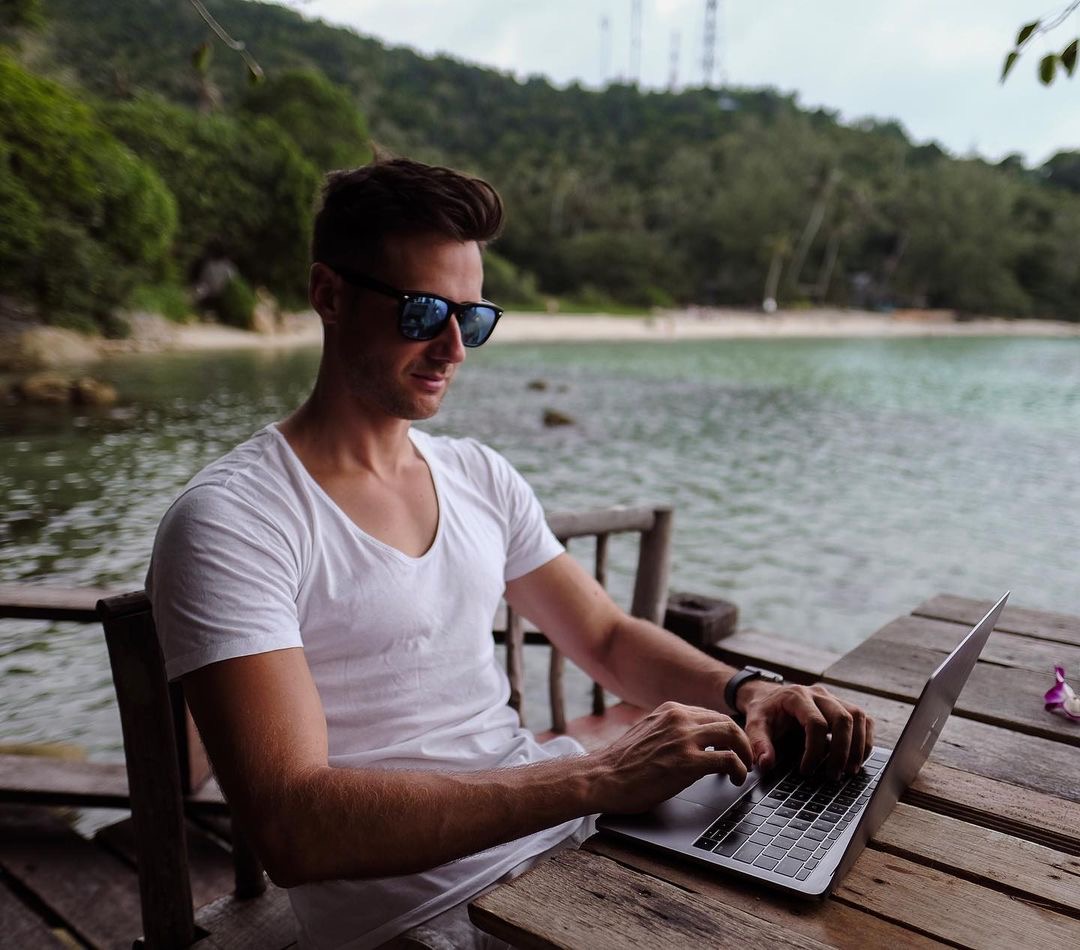
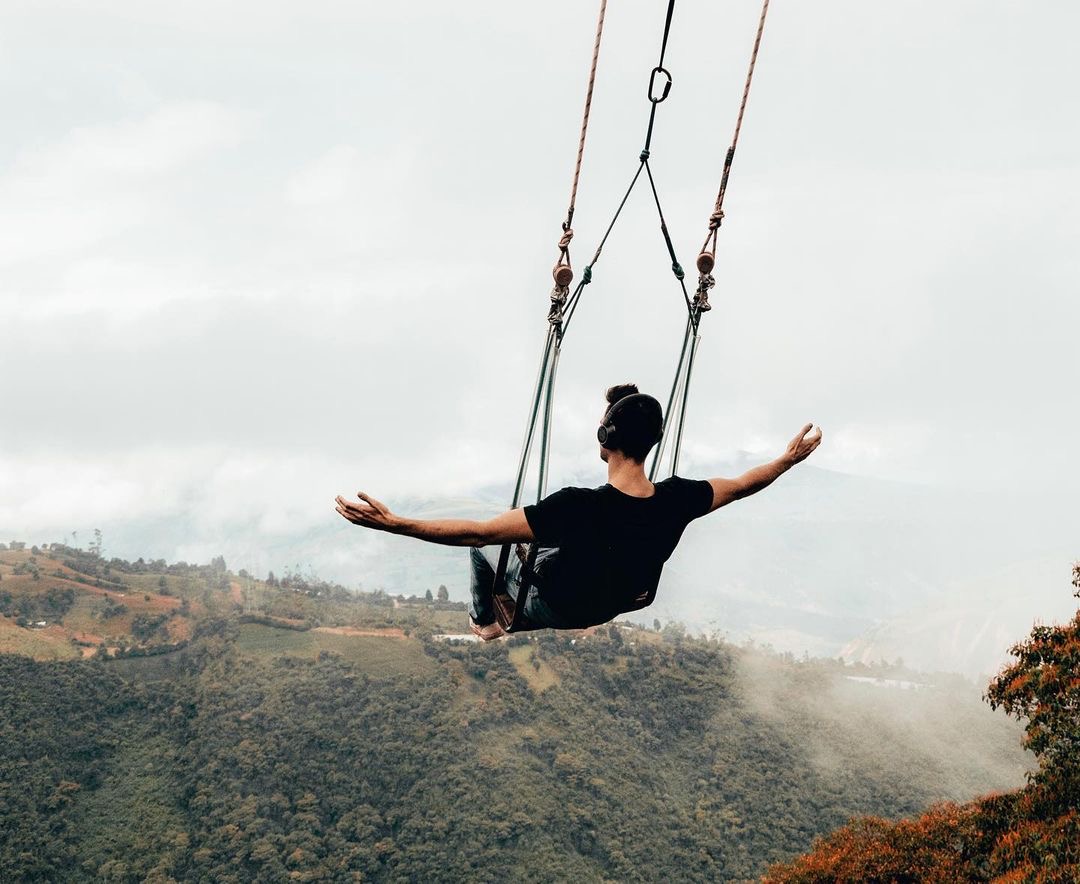
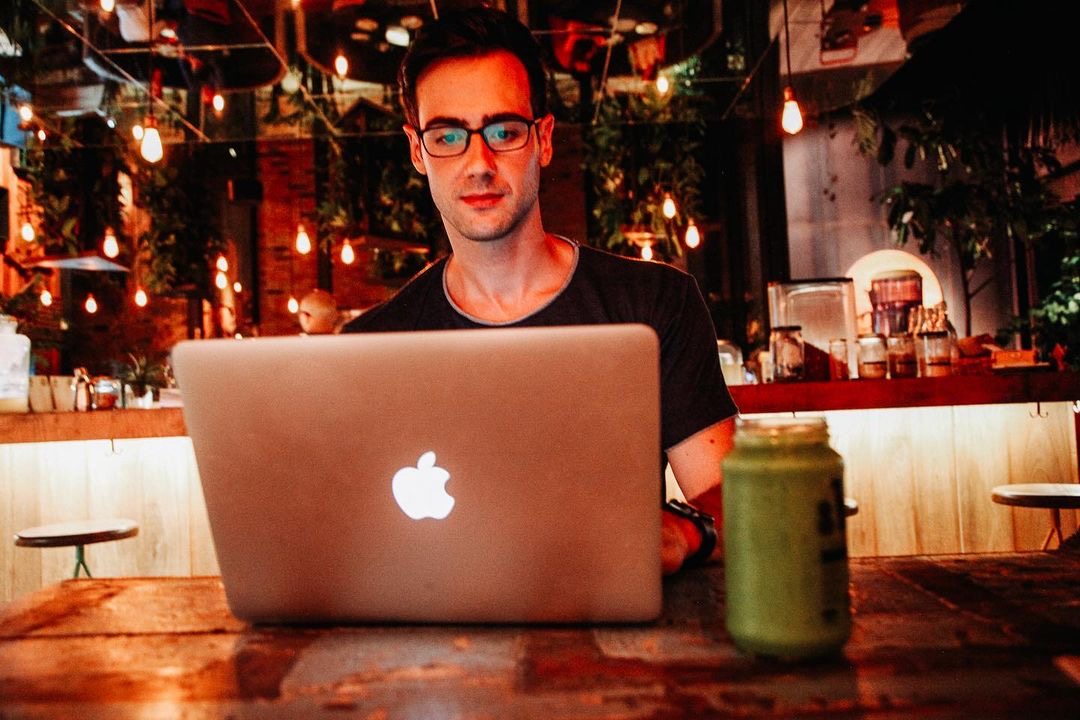

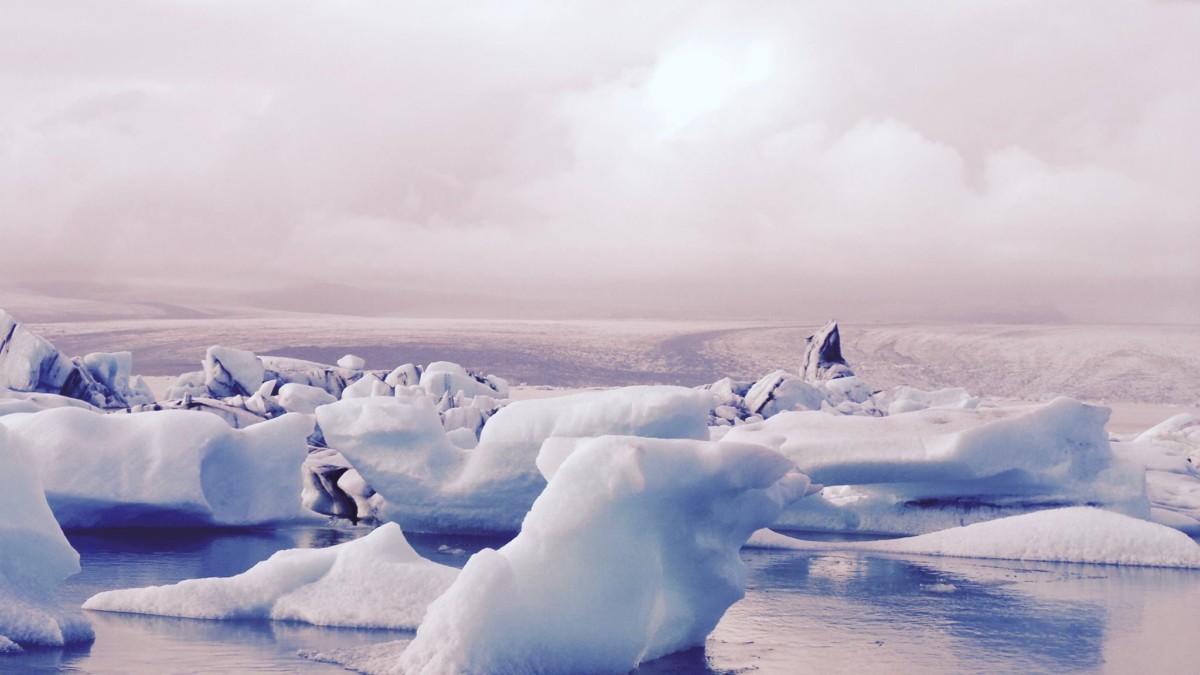
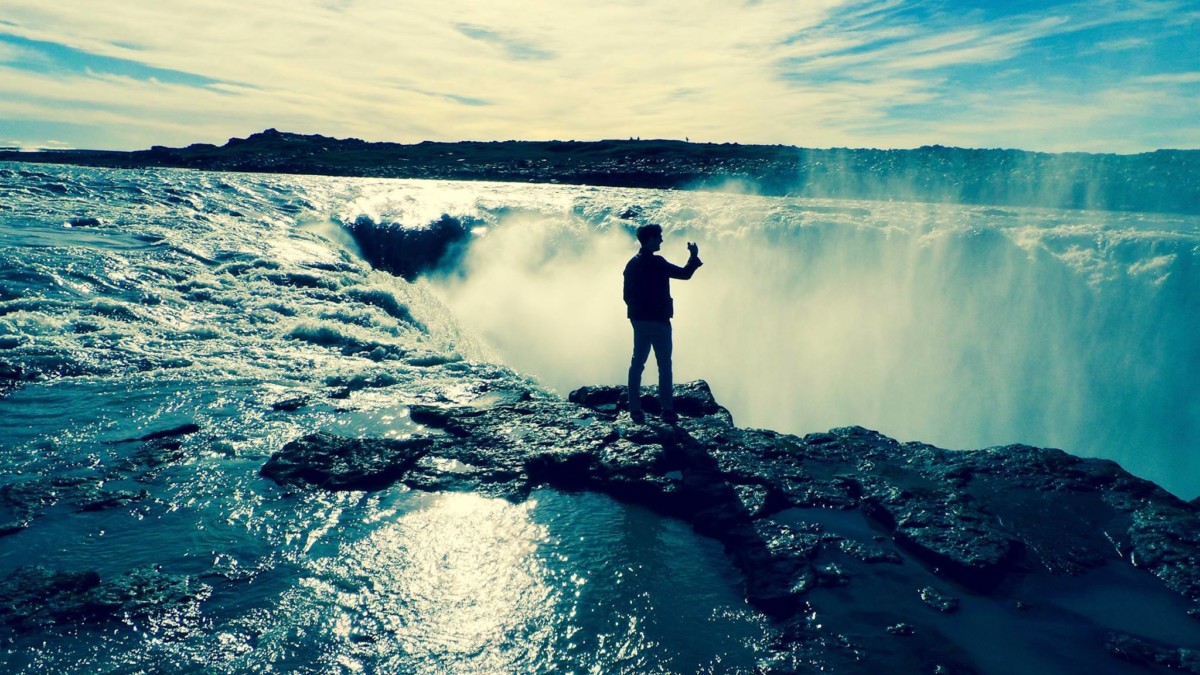
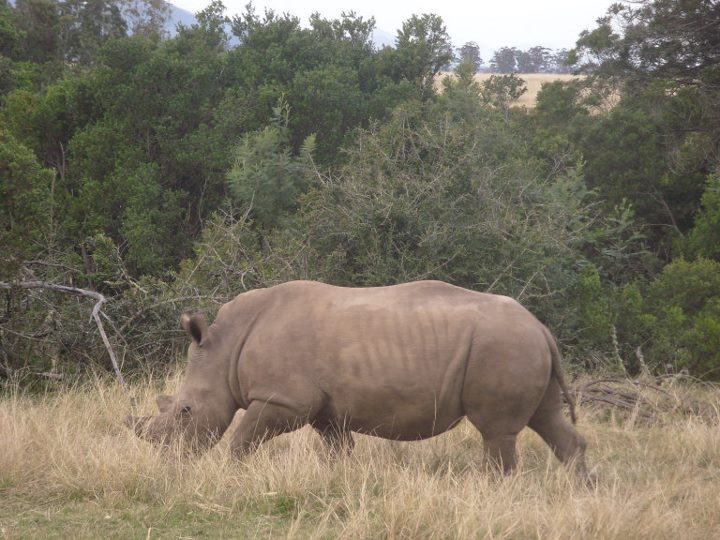
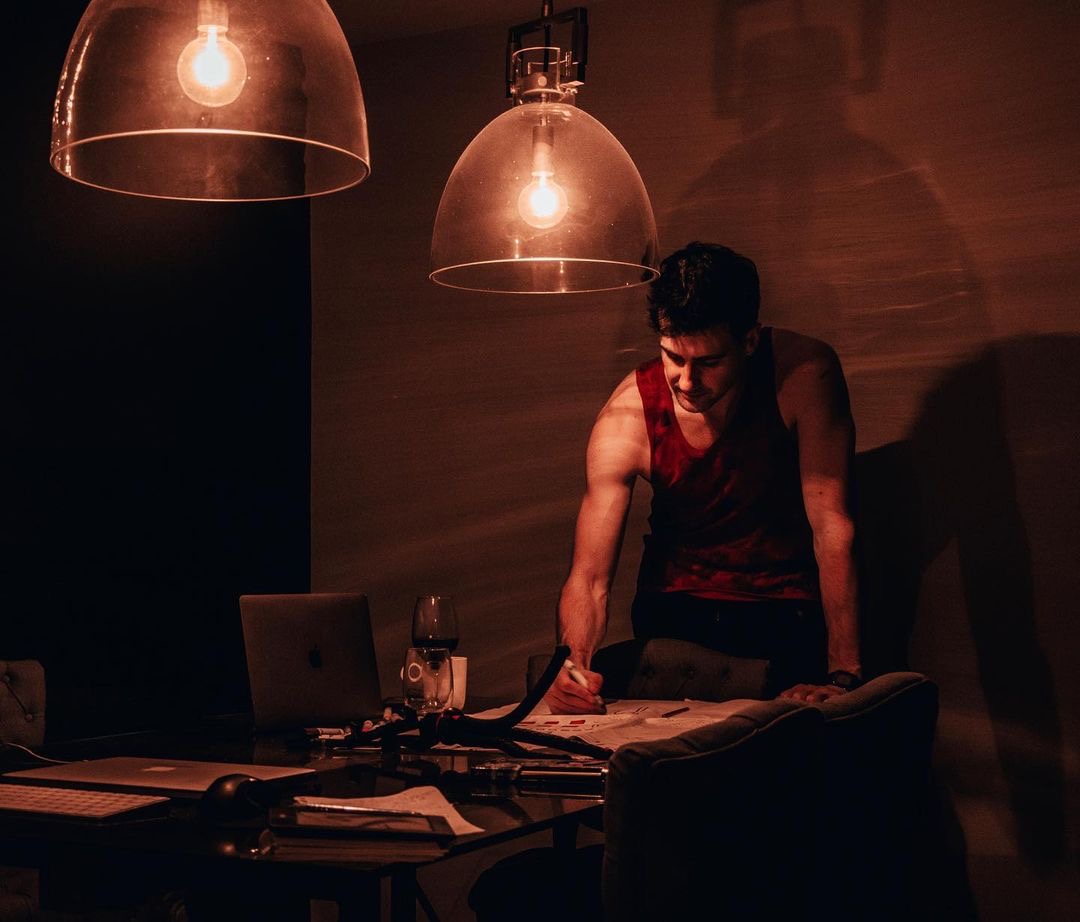
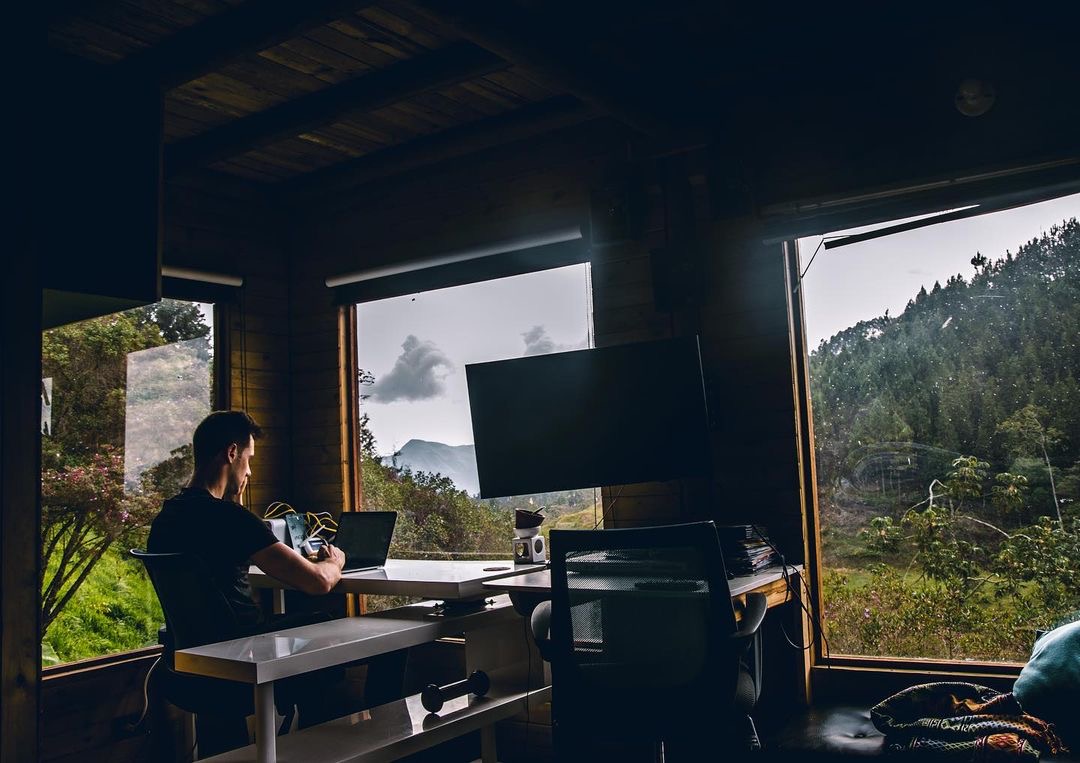
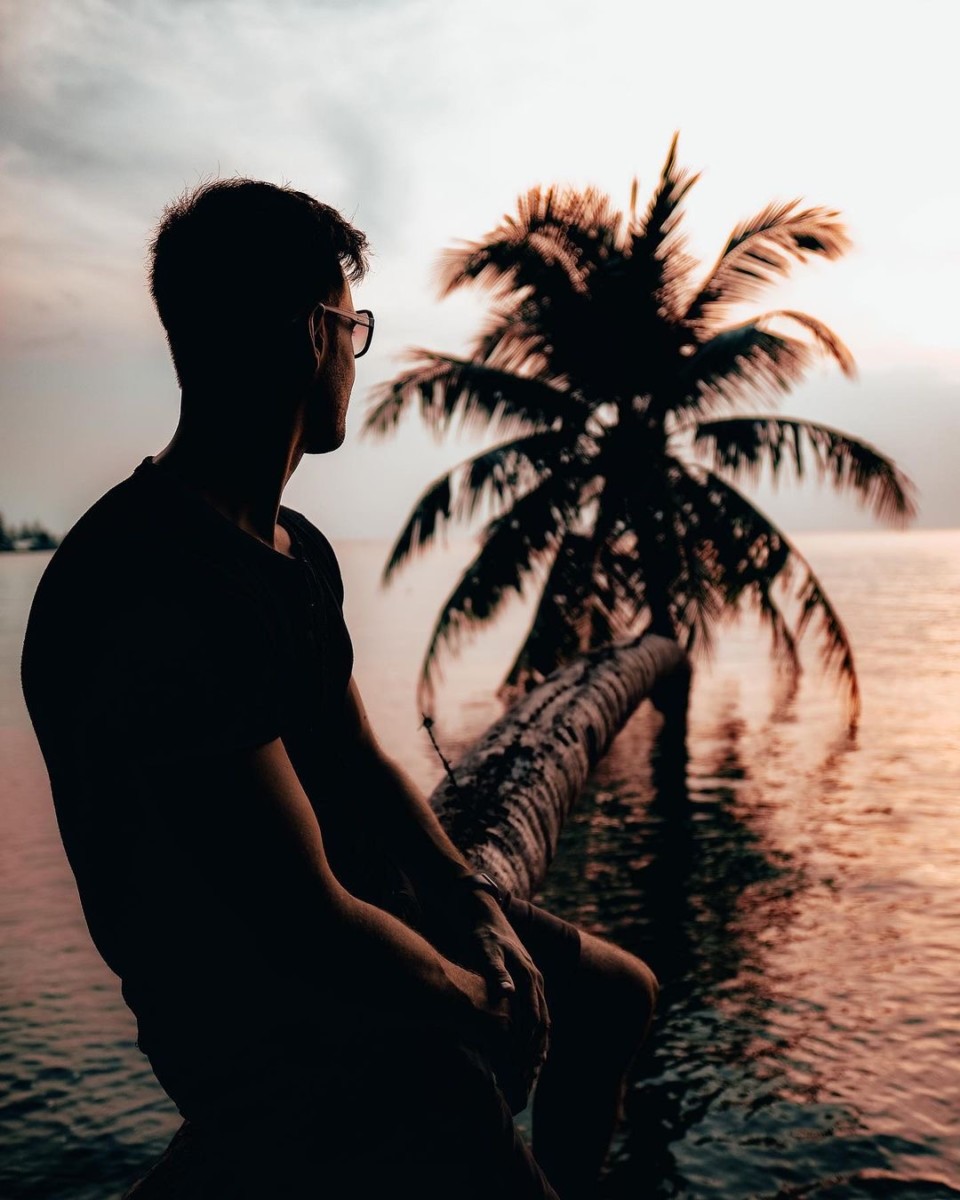
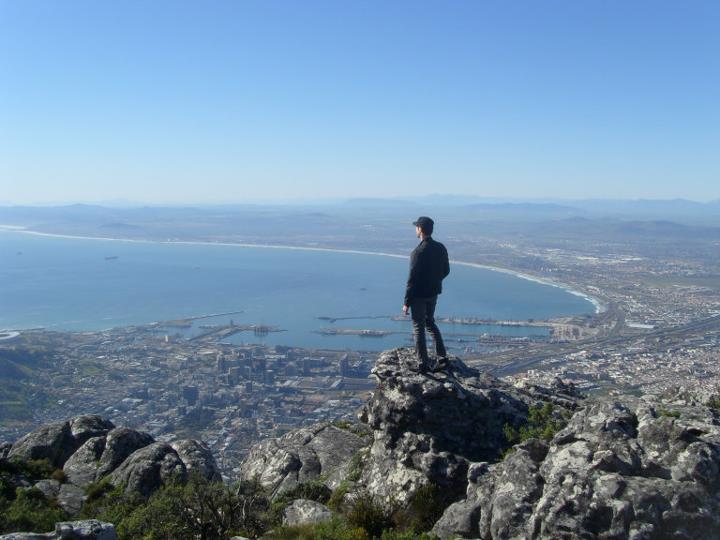
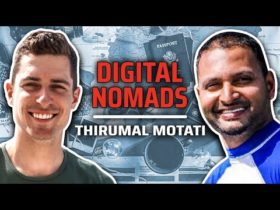
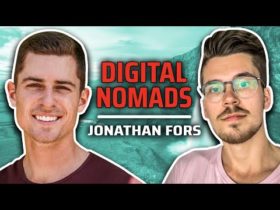
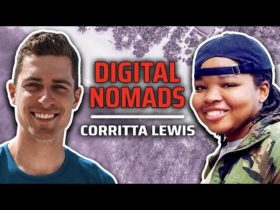
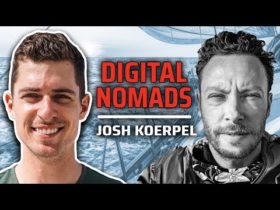
Leave a Reply
View Comments